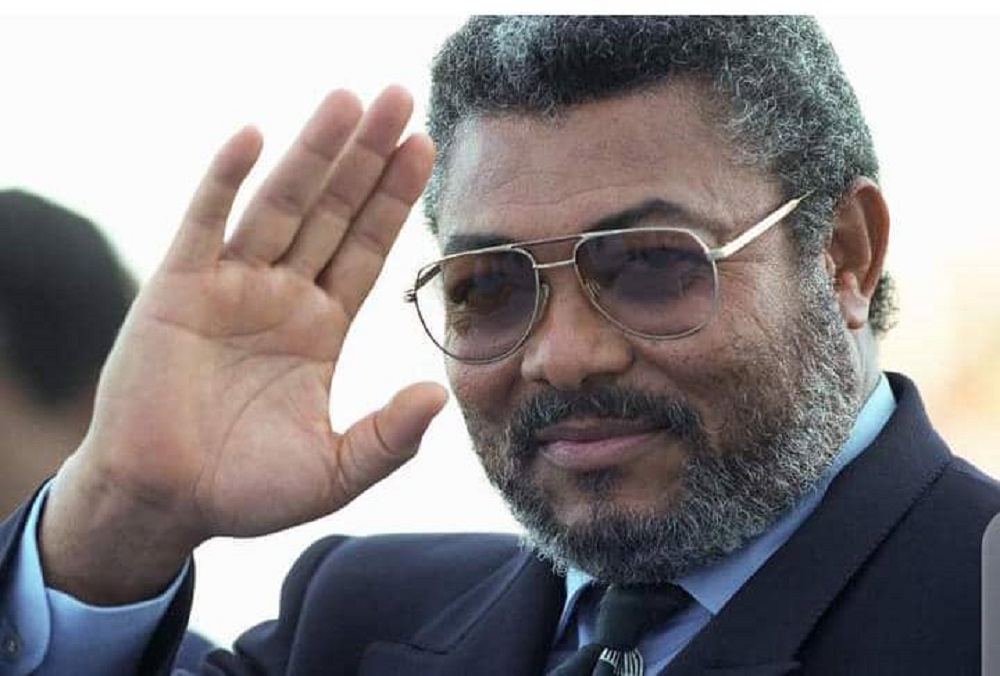Former President, Chief Olusegun Obasanjo says he would forever be indebted to former President of Ghana, Jerry John Rawlings, who died on Thursday at age of 73.
Obasanjo said he had worked closely with Rawlings during the last two years of the former Ghana leader’s presidency, saying he found in him, “a reliable friend, ally and confidant.”
- Buhari mourns Ex-Ghana president Jerry Rawlings
- Buhari/Osinbajo group demands tenure extension for Buni c’ttee
This was contained in a condolence letter addressed to President Nana Addo Dankwa Akufo-Ado, a copy which was made available to newsmen on Thursday in Abeokuta, Ogun State, by his Special Assistant on Media, Kehinde Akinyemi.
According to him, Rawlings played a key role in furthering the actualization of the objectives of the Africa Leadership Forum, ALF, a non-governmental organization founded by him (Obasanjo) in 1988 to develop leadership capacities in Africa in order to increase productivity of major actors in government, parliament, business and civil society.
Obasanjo noted that the late Ghanaian President “supported and accommodated the organisation and its staff during the period of the relocation of the organisation’s base to Ghana because former Military Head of State, Sanni Abacha wanted to have them destroyed just immediately after he got me arrested and imprisoned on a trumped-up charge of coup plotting in 1995.”
He said “No doubt, his generous assistance to ALF and its staff makes me forever indebted to him. I can proudly say he was a true friend and brother. His works, values, and principles have had and will continue to have a great influence and impact in Africa and beyond.”
While paying a glowing tributes, he noted that Rawlings “was passionate about peace, security and leadership issues in Africa.”
“Like many of his contemporaries too, former President Rawlings provided the much-needed leadership and direction which impacted positively on the social stability and democratic progress recorded thus far in Ghana. A quintessential patriot and courageous leader, he will be remembered for his critical role in the evolvement of modern democratic Ghana,” he added.
He commiserated with the Government and the good people of Ghana as well as millions of others around the world “in mourning a man, who dedicated his life to the growth and development of Ghana, his country, in particular, and Africa as a whole.”
The Former Ghanaian leader died on Thursday, November 12 after a brief illness.
He had been hospitalised at the Korle Bu Teaching Hospital for about a week for an undisclosed illness, said the state-owned Daily Graphic.
He is a joint recipient of the 1993 World Hunger Prize.
He holds an Honorary Doctor of Law Degree from Medgar Evers College, City University of New York and Lincoln University Doctorate Degree for Diplomacy and Development.
A flight-lieuteant, he ceased to be a member of the Ghana Armed Forces in 1992.
He formed the National Democratic Congress, which contested and won presidential and parliamentary elections in 1992 and again in 1996.
His term of office ended in the year 2000.
- Coup in the background
On May 28, 1979, Flt.-Lt. Rawlings, together with six others, appeared before a General Court Martial in Accra, charged with leading a mutiny of junior officers and men of the Ghana Armed Forces on 15th May, 1979.
There was strong public reaction, especially after his statement had been read in court, explaining the social injustices that had prompted him to act.
The ranks of the Armed Forces, in particular, expressed deep sympathy with his stated aims. When he was scheduled for another court appearance on 4th June, 1979, Flt.-Lt. Rawlings was sprung from custody.
With the support of both military and civilians, he led a revolt, which decisively ousted the Supreme Military Council from office and brought the Armed Forces Revolutionary Council (AFRC) into being.
The AFRC, under the chairmanship of Flt.Lt. Rawlings carried out a “house-cleaning exercise” aimed at purging the Armed Forces and society at large of corruption and graft as well as restoring a sense of moral responsibility and the principles of accountability and probity in public life.
Meanwhile, following the programme already set in motion before the 4th June Uprising for civilian administration, general elections were held.
On 24th September 1979, the AFRC handed over to the civilian Government of the People’s National Party (PNP) under President Hilla Limann.
On 31st December 1981, Flt. Lt. Rawlings led a section of the Armed Forces to overthrow the PNP administration.
A Provisional National Defence Council (PNDC), composed of both civilian and military members, was established, with Flt-Lt. J.J. Rawlings as the Chairman.
His interests include reading, building model aircraft, horse-riding and swimming. He is married to Nana Konadu Agyeman-Rawlings with whom he has four children – three girls and a boy.

 Join Daily Trust WhatsApp Community For Quick Access To News and Happenings Around You.
Join Daily Trust WhatsApp Community For Quick Access To News and Happenings Around You.

